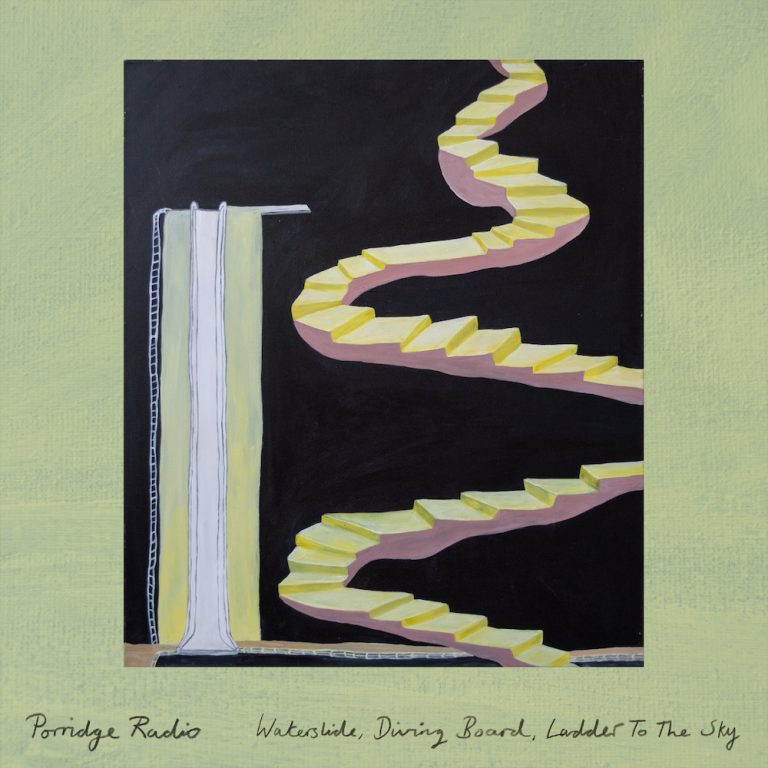Porridge Radio have never made the most imaginative or riveting music, but their last album, Every Bad, felt particularly mild. It was wrought with an unimpressed and uninterested spirit — the tone was apathetic while the music itself felt predictably dreary. But there has always been one element about Porridge Radio that has continuously shone with striking promise and raw passion through the band’s indifferent nature: frontperson Dana Margolin.
Whether amid sparseness or grandeur, the voice of Margolin is an undeniably unyielding force. Even when she’s on the verge of breaking down, her voice can withstand and resound – stout and firm – through a storm of tumultuous emotion. However, only now is its affecting power being realized.
Through their first two records, Porridge Radio, like many kindred art-punk acts, would use indifference and the effects of millennial malaise to convey disdain toward a relentlessly unforgiving world. This posture, however, eventually wore itself thin through the years, with Porridge Radio wielding numbness and disinterest to an unflattering degree. Truthfully, it seemed the band forgot the nuanced reality and capabilities of the wondrous human heart, an indefinable entity that’s naturally inclined to polarizing peaks and valleys of pain and pleasure, chaos and harmony, ecstasy and unbending anger.
But not here.
Things are a little different for Porridge Radio on their latest album Waterslide, Diving Board, Ladder To The Sky. They’ve made the brave decision to remember what it’s like to feel and to breathe again, and it can all be heard in the stirring vibrations of Margolin’s words and voice.
In numbness, the nuance of human emotion always prevails, even to the slightest amount. Porridge Radio prove this early on in the album with the track “Birthday Party”, where Margolin maintains, repeatedly, that she doesn’t “want to be loved” and she simply doesn’t “want to feel a thing”. But alas, the track is a contrasting, crescendoing work of beauty coiled tight with anxiety that unwinds with explosive desperation. Her convictions are steadfast on paper; however, any empathetic person could sense the sick-and-tired anger belying her words. She does want to be loved, and she does desire to feel.
The crushingly depressive dirge “U Can Be Happy If U Want To” finds Margolin singing with her one-note baritone of old, but she’s got a trick up her sleeve this time: refuting her dismal show with a message of hope. Even when Margolin admits, “everything tastes so bad” and that “nothing is fine” with every song she writes, her dejected façade gradually dissipates, allowing hope and sentiments of admirable devotion to take over. Her voice soars and breaks, revealing a person with a passionate heart filled with dreams to reach and trauma to forget.
The bleak but finely textured surface of Waterslide, Diving Board, Ladder to the Sky is temporarily suspended by dense, heartwarming levity conjured by the subtle folk-pop of “Rotten”. Here, a clear roadmap toward simple, holistic betterment of oneself is laid out. But again, shades of genuine human feeling — the highs and lows— emerge. Even when Margolin recognizes the need to go outside and eat the things that make her well, she lingers, flushed with agony and slight disdain, admitting that her “puny muscles ache” and that “outside, it’s cold / Inside, I can be alone.” And yet, Margolin fights past the anguish and stops “the rot from spreading.” This soft and shy performance will leave listeners toiling in tears yet inspired by her genuine declaration of positivity, albeit, accented by a relatably raw reality: that it’s scary to get better when festering rot and pain has become the norm.
Depression, actualized as numbness and indifference, can be a place of comfort at times but a debilitating trap when embraced. It’s a headspace that must be actively sidestepped, sometimes by acknowledging anger or frustration, especially when shit hits the fan. Intimately plugged into the matters of the laboring heart, Margolin helps us embrace the shit plastered on the surrounding walls with the album opener and lead single, “Back To The Radio”. Here, said anger and frustration are pronounced ten-fold. In the past, passivity and stagnation would have been natural for her when dealing with a poorly dealt hand. But now, even amidst a universe that tends toward misanthropy, Margolin exerts, scratches, and claws with deeply-felt desperation. Locked in her house with windows shut, ready to brave impending conflict with a significant other, Margolin realizes that “we cannot get better / If we can’t talk about it.” Though this conflict will inevitably hurt, submitting to passivity will only cause more damage. They’re “laughing and talking”, but Margolin “wants to cry” and figure this mess out. It’s one thing to articulate this unwanted desire with mere words, but she feels too intensely, and you can sense it in the literal, fragile cry of her voice.
Though we’re made privy to this uncomfortably bare expression of sadness, it’s a sacredly cathartic moment that positions Margolin as a beacon of light, all-encompassing of possibility, evolution, and the desire to dig oneself out of despair. An unwavering attitude of perseverance is the most conventional way to inspire, but not here. Instead, Porridge Radio wield wavering conviction and unsteady devotion, transmitted through the beautiful brittleness of a single voice.
When reckoning with trauma and the stressors of the world, it is natural for the body to numb itself and unravel accordingly — to stiffen up, tight-lipped without much of an array of emotion to signify. And that’s what we’ve heard and experienced from Margolin and Porridge Radio up until this point. Where the band’s first few projects were the manifestations of a numbed mind, body and soul, their latest is the profound exhalation of pent-up passion — a result of holding breath for far too long. To breathe is to feel.

